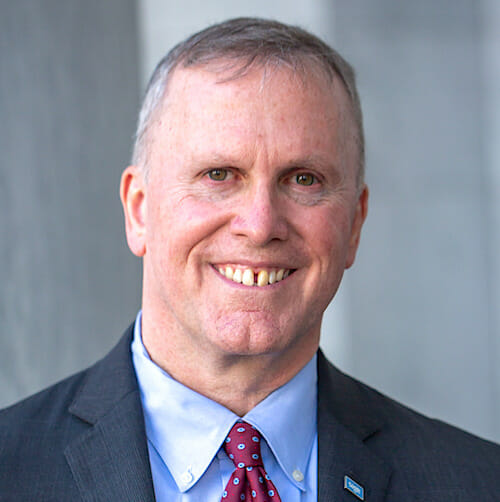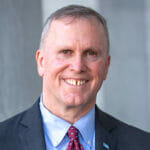
As we enter the holiday season and its risks for isolated elders, I find myself thinking about recently deceased comedic genius Leslie Jordan.
Jordan was distinctive not just because he was flamboyantly gay, but also because he was dramatically and unapologetically Southern, with his distinctive drawl and his frequent stories about his upbringing. Jordan’s humor often focused on his childhood in a Southern Baptist community. He never ceased to remind his audiences that he came from, and still very much was rooted in, a much more traditional world than the one in which he traveled as a celebrity.
Jordan’s story was distinctive in Hollywood, but it was far from unique in the real world that we occupy. A 2018 study by AARP found that the vast majority of older LGBTQ+ people do not live in big cities and that 25% of LGBTQ+ elders live in small cities, towns and rural areas.
AARP’s finding contradicted the stereotype that all or most LGBTQ+ people migrate to big cities as soon as they can. Instead, many choose to stay in the small towns and rural communities in which they grew up.
Although life isn’t easy for LGBTQ+ elders living in big cities, there are even greater challenges for those who live in rural areas. For example, there aren’t many visible LGBTQ+ community support systems in rural areas — only 10% of rural LGBTQ+ older people report having access to LGBTQ-friendly services. And with the recent swing in many so-called “red” parts of the country toward extremist-based intolerance, the conditions for rural LGBTQ+ older people are likely worsening.
As a result, rural LGBTQ+ elders are vulnerable to extreme social isolation and a difficult aging process, bereft of the support, services and care we all need as we grow older. Those dynamics worsen during the holiday season, when people not connected to strong family or friendship networks often struggle. They’re further exacerbated by the distances between homes, limited transportation options, and patchy internet access faced by many rural elders throughout the year. And although services and supports specifically geared toward LGBTQ+ older people are becoming more available in big cities, they’re nonexistent in rural areas, forcing LGBTQ+ elders to edit their histories and memories for their neighbors, to live invisibly and to age alone and isolated.
Improving the quality of life of rural LGBTQ+ older people requires intentional change at both the community and public policy levels. As always, we badly need more research on the specific needs of rural LGBTQ+ elders and the policies and practices needed to address those needs.
Passing the Elder Pride Act, a federal proposal to help LGBTQ+ elders in rural areas, would be a big step forward. The Elder Pride Act would open up elder programs and services in rural areas — for example, small town senior centers, older adult housing and elder care programs — so that they are welcoming places for LGBTQ+ older people. Programs such as those must be supplemented by initiatives such as SAGECare, which provides training and technical assistance to care and housing providers in rural areas so that they have the tools and understanding to provide culturally competent services to LGBTQ+ elders. SAGECare’s credentialing program can help ensure that LGBTQ+ older people in rural areas are aware when a local agency has made the commitment to welcome them. (Juniper Communities, Senior Living Residences, United Church Homes and Watermark Retirement Communities are just a few of the senior living organizations that have taken advantage of SAGECare resources.)
We also need to leverage technology to give LGBTQ+ older people in rural areas access to programs designed specifically with them in mind and to help them connect and build community with people who care about them and respect them for who they are. Those elders could, and should, benefit from the quick shift to virtual programming made by big city programs during the COVID pandemic, but this can’t happen in a bubble.
That’s why expanding high-speed broadband into rural areas also is key. There’s no way to support isolated LGBTQ+ elders through technology if it can’t reach them. Fortunately, the massive infrastructure bill passed by Congress at President Biden’s urging represents important progress by funding the expansion of rural broadband access.
This holiday season, we have a moral responsibility to ensure that every older American has the support and respect they deserve. It’s time that we step up to the plate with and on behalf of these elders who chose to stay in their rural communities and contributed a great deal along the way as good taxpayers, neighbors and community members. LGBTQ+ elders living in rural areas deserve to be supported and cared for as they age.
Michael Adams is CEO of SAGE, the world’s largest advocacy organization for LGBTQ+ elders.
The opinions expressed in each McKnight’s Senior Living guest column are those of the author and are not necessarily those of McKnight’s Senior Living.
Have a column idea? See our submission guidelines here.




